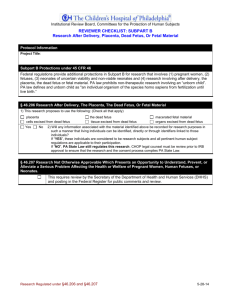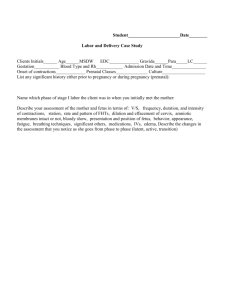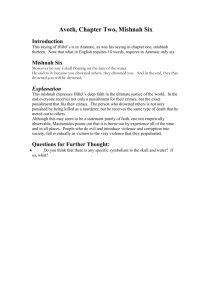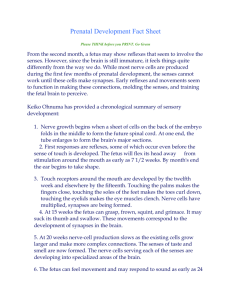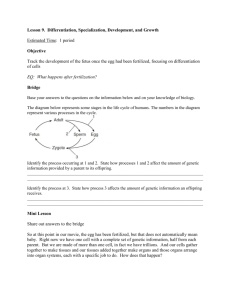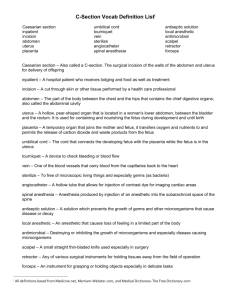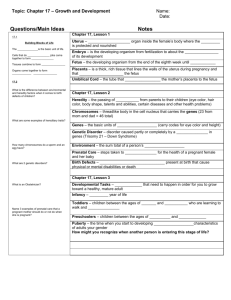The Punishment for Manslaughter
advertisement
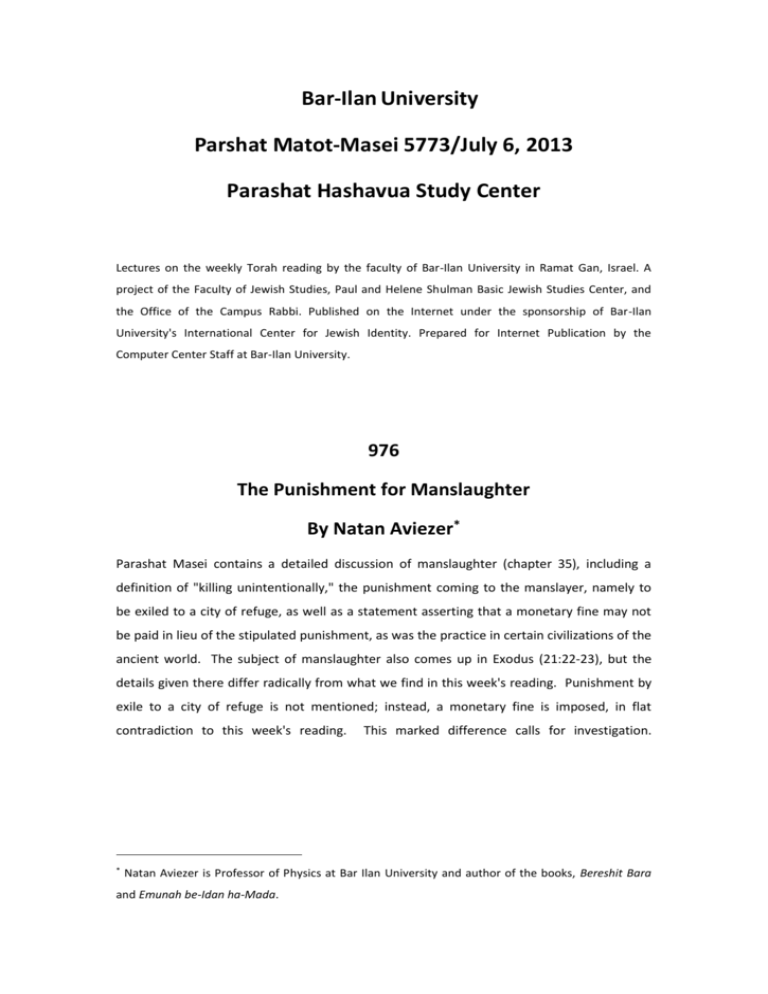
Bar-Ilan University Parshat Matot-Masei 5773/July 6, 2013 Parashat Hashavua Study Center Lectures on the weekly Torah reading by the faculty of Bar-Ilan University in Ramat Gan, Israel. A project of the Faculty of Jewish Studies, Paul and Helene Shulman Basic Jewish Studies Center, and the Office of the Campus Rabbi. Published on the Internet under the sponsorship of Bar-Ilan University's International Center for Jewish Identity. Prepared for Internet Publication by the Computer Center Staff at Bar-Ilan University. 976 The Punishment for Manslaughter By Natan Aviezer* Parashat Masei contains a detailed discussion of manslaughter (chapter 35), including a definition of "killing unintentionally," the punishment coming to the manslayer, namely to be exiled to a city of refuge, as well as a statement asserting that a monetary fine may not be paid in lieu of the stipulated punishment, as was the practice in certain civilizations of the ancient world. The subject of manslaughter also comes up in Exodus (21:22-23), but the details given there differ radically from what we find in this week's reading. Punishment by exile to a city of refuge is not mentioned; instead, a monetary fine is imposed, in flat contradiction to this week's reading. * This marked difference calls for investigation. Natan Aviezer is Professor of Physics at Bar Ilan University and author of the books, Bereshit Bara and Emunah be-Idan ha-Mada. Regarding manslaughter, this week's reading says (Num. 35:22-24):1 But if he pushed him without malice aforethought or hurled any object at him unintentionally, or inadvertently dropped upon him any deadly object of stone, and death resulted—though he was not an enemy of his and did not seek his harm—in such cases the assembly shall decide between the slayer and the blood-avenger. As for the punishment due a manslayer, it says (Num. 35:11-13, 25): You shall provide yourselves with places to serve you as cities of refuge to which a manslayer who has killed a person unintentionally may flee. The cities shall serve you as a refuge from the avenger, so that the manslayer may not die unless he has stood trial before the assembly. The towns that you thus assign shall be six cities of refuge in all…The assembly shall protect the manslayer from the blood-avenger, and the assembly shall restore him to the city of refuge to which he fled, and there he shall remain until the death of the high priest who was anointed with the sacred oil. On the prohibition against substituting a monetary payment instead of exile, it says (Num. 35:32): "Nor may you accept ransom in lieu of flight to a city of refuge, enabling one to return to live on his land before the death of the priest." Exodus, however, writes of manslaughter (Ex. 21:22-23): When men fight, and one of them pushes a pregnant woman and a miscarriage results, but no tragedy ensues, the one responsible shall be fined according as the woman's husband may exact from him, the payment to be as the judges determine. But if a tragedy ensues, the penalty shall be life for life. Rashi explains this passage in his biblical commentary: If two men (Reuven and Shimon) are trying to kill each other, and a pregnant woman walks by them as they are fighting, and a blow from Reuven hits the woman by mistake, then a "tragedy" might ensue. Rashi interprets this as referring to the case that the woman dies of the blow. But "if no tragedy 1 It should be noted that the meaning of the Hebrew terms has changed. In modern Hebrew, the verb r-ts-h is used to denote willful killing, i.e., murder, while h-r-g is used for killing unintentionally, i.e., manslaughter. Such is not the case in the Torah. There, the verb r-ts-h denotes what we today would call "killing," so that even a person who takes another's life unintentionally is called rotse'ah. (The New JPS Translation resolves this issue by using the word "manslayer.") ensues" refers to the case that the woman does not die of the blow. If Reuven actually kills the woman unintentionally, we would expect his punishment to be exile to a city of refuge, as we read in this week's portion: "though he was not an enemy of his (hers) and did not seek his (her) harm" (Ex. 35:22). However, according to what is written in Exodus, his punishment is "life for life." The meaning of these words is debated, as Rashi explains: "The rabbis are divided on this matter. Some say it means literally a life for a life, and others say money, but not literally life for life." But even according to either of these views, Reuven is not punished by being exiled to a city of refuge. What is the distinction between the situation described in Exodus and the case in this week's reading justifies a different punishment in each case? According to Exodus, Reuven might kill a woman unintentionally in the course of deliberately attempting to kill Shimon. In such an instance, according to the first view, Reuven should receive the death sentence that would have been given him had he succeeded in killing Simeon. In English law this is known as the principle of transferred malice, i.e., Reuven's malicious intentions towards Simeon are transferred to his killing the woman, and therefore his punishment is death. The second possibility discussed in Exodus is the case where "no tragedy ensues," i.e., the fetus dies because of Reuben's blow, but not the woman. In such a case Reuven's punishment would be to pay for the damages he caused in killing the fetus ("as the judges determine"), and not to be exiled to a city of refuge. This rule of the Torah answers a well-known question: is abortion considered murder? The very fact that there is one punishment for killing the woman (death) and another punishment for killing the fetus (a fine) proves an essential difference between the status of the fetus and that of the woman. The status of the fetus is discussed both in the mishnah and the gemara. The mishnah in Tractate Ohalot describes an unfortunate situation in harsh terms (7.6): When a woman encounters difficulty giving birth, the fetus is cut in pieces inside her womb and taken out limb by limb, because her life takes precedence over his. Some people explain this ruling of the mishnah in terms of the law of rodef (a "pursuer"): since the fetus endangers the life of the mother, it is considered a "pursuer" and should be killed in order to save her life. We cannot accept this explanation, however, because of the end of that mishnah, which describes another unfortunate situation:2 "If most of him [the fetus] has come out, he is not to be harmed, for the life of the one does not take precedence over the life of the other." Why is he not to be harmed? In this case, too, the fetus endangers the mother's life, so the principle of rodef ought to apply to him, as we read at the beginning of the mishnah. To help us understand the mishnah in Tractate Ohalot, let us look at Maimonides' commentary on it: "This is quite straightforward and needs no explaining"! This unequivocal remark of Maimonides tells us that the way to understand the mishnah lies in the words of the mishnah themselves, without needing any additional explanation not explicitly stated therein, such as the laws of rodef. The condition of the fetus comes under discussion in the gemara as well (Sanhedrin 72b). There it says that the laws of rodef also apply to a small child. The gemara points out the contradiction between this assertion and the conclusion of the mishnah in Ohalot ("If most of him [the fetus] has come out, he is not to be harmed") and asks: "Why [does one not harm him)? He is a rodef!" The gemara answers, "Because his being a rodef to her is from heaven," meaning that the threat to the mother's life comes naturally from heaven, without any intention on the part of the fetus, and without intent one cannot apply the laws of rodef to the fetus. Now we can understand the end of the mishnah: if the laws of rodef do not apply to the fetus, there is no justification for killing it in order to save the mother's life, as it says in the mishnah: "for the life of the one [the mother] does not take precedence over the life of the other [the fetus]." But what are we to make of the beginning of this mishnah? If the laws of rodef do not apply to the fetus, why does the beginning of the mishnah state that the fetus is to be killed ("the fetus is cut up in her womb") in order to save the mother's life? Rashi's commentary on the gemara in Tractate Sanhedrin provides the answer: "As long as the fetus has not seen the light of day, it is not a soul and may be killed in order to save the mother's life." Thus Rashi explains that prior to birth the fetus is not considered a person. Even though we are dealing with no more than a few minutes prior to birth, when all the biological systems of the fetus are functioning properly and its chance of surviving outside the mother's womb are close to 100%, nevertheless the fetus is not considered a person until after it is born. Therefore, if one has to choose between the life of the mother, a living "soul," and the life of the fetus, 2 In our day, thank G-d, it is often possible to save both the life of the mother and of her child. not yet a "soul," preference is given to the life of the mother, "because her life takes precedence of its." Thus we see that there is no contradiction between the law regarding manslaughter as stated in Exodus and the law on manslaughter in this week's reading. Each one deals with a different situation and hence each case has its own set of laws. Translated by Rachel Rowen
